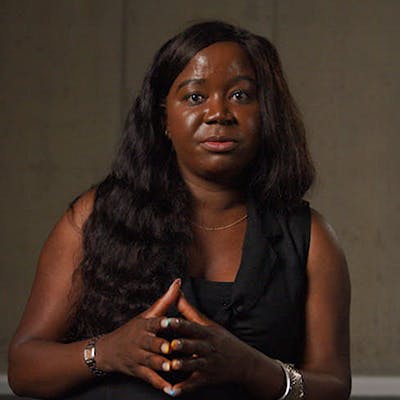
Mary Makinde is a Principal Lecturer in Forensic Investigation at Canterbury Christ Church University. Mary has worked as a Forensic Scientist at two of the United Kingdom’s leading Forensic Science Providers, and she has over 16 years experience working in the field. As a Forensic Scientist, Mary’s specialist area lies within forensic biology, specialising in the recovery and analysis of biological material such as hairs, fibres, body fluids, blood pattern analysis and other trace evidence, including gunshot residue from exhibits recovered at crime scenes. Within her role as a Forensic Scientist, Mary has worked on a number of major crime cases, including counter terrorism, cold case reviews, international cases, serious sexual offences and high-profile cases. Mary continues to work closely with a number of forensic science providers, police forces and key members of the criminal justice system where she provides training and expert advice on forensic biology, quality standards in forensic science, DNA and blood pattern analysis. Mary’s practitioner background has been integral in the development of her approaches to curriculum design and research. Mary is a multiple award winning academic, winning multiple institutional University Teaching Excellence Awards, Golden Apple Awards and National Awards for her dedication to her students, inclusive practice and teaching excellence. James Harris is a Lecturer in Policing at Canterbury Christchurch University. He is a former Detective with the City of London Police, where for over 10 years he worked in a variety of investigative functions, major crime. James teaches a range of modules including Major Crime Investigation, and Criminal Investigation His area of expertise and passion focuses on investigative interviewing; as a former specialist Interview Advisor, James has extensive real-world experience conducting interviews and developing strategies for high-stakes investigations. He is particularly interested from a research perspective on interviewing skills of volume crime investigators and still provides support and training to law enforcement both in the UK and internationally. He is a member of the International Investigative Interviewing Research Group (iiirg) and an active speaker at conferences.


